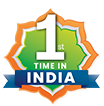Congress Schedule
Provisional Programme And Indicative Content
 Pre-Conference Thematic Workshops for Developing Countries, supported by:
Pre-Conference Thematic Workshops for Developing Countries, supported by:
-
 International Association of Fish Inspectors
International Association of Fish Inspectors
-
 Food and Agriculture Organisation of the UN
Food and Agriculture Organisation of the UN
-
 United Nations Industrial Development Organisation
United Nations Industrial Development Organisation
-
 CGIAR Worldfish
CGIAR Worldfish
 Thematic Areas
Thematic Areas
-
 Health hazards, safety and nutrition of seafood
Health hazards, safety and nutrition of seafood- Balancing health costs and benefits of consumption
- Health risk assessment and risk management decision making in seafood safety
- Assessing risks and appropriate levels of protection
- Optimising nutritional benefits of fish and mollusc consumption for target populations
- Emerging, newly- and non-regulated food safety hazards (e.g. PFAs, mineral oil hydrocarbons)
-
 Challenges in seafood regulation, inspection and control
Challenges in seafood regulation, inspection and control- Regulatory trends and impacts on aquatic product trade and development
- Challenges in organisation and management of sanitary competent authorities for market access
- Dual standards - regulatory differences between export & domestic markets
- Innovation in food safety and inspection methods
- Remote audits, monitoring and inspection of seafood; role of AI and digitisation
- Traceability tools for improving safety in the supply chain
- Importer and retailer perspectives on supply chain integrity
-
 Assessing seafood safety and quality
Assessing seafood safety and quality- Detecting and preventing fish fraud
- Advances in laboratory methods for seafood testing
- Analytical tools in seafood traceability
- Indicators for seafood safety in the supply chain
- Challenges in fishmeal and animal feed safety
-
 Carbon neutrality and the seafood sector
Carbon neutrality and the seafood sector- Marine ingredients and the intersection of fisheries and aquaculture
- Energy accounting methods and carbon footprints in aquatic product supply chains
- Advances in energy efficiency (refrigeration technology and role of solar power)
-
 Markets for Sustainability Certification and Sectoral Responses
Markets for Sustainability Certification and Sectoral Responses- Safety and sustainability in certification systems - benchmarking and validation
- Market-led fisheries and aquaculture improvement programmes
- Role of certification bodies in enhancing social and environmental justice
-
 Ethical dimension of seafood trade
Ethical dimension of seafood trade- Measuring ethical content of seafood
- The demand for ethical products
- Sentience and welfare concerns in aquaculture and capture fisheries
- Stunning and slaughter methods and engineering solutions
-
 Corporate social responsibility in seafood supply
Corporate social responsibility in seafood supply- Society and development – understanding the links to seafood trade
- Trade impact potential of CSR legislation
- Organisational responses in implementing CSR in seafood operations; the Indian model
- Measuring CSR performance in the supply chain
- Audit procedures and impact assessment methodology for CSR interventions
- Retailer perspectives - ethical labelling and consumer information
-
 Solutions to forced labour
Solutions to forced labour- Typology and measurement of human rights violations in fisheries and aquaculture
- Human rights legislation, monitoring and enforcement in fisheries and aquaculture
- Approaches to better work and welfare improvement in the seafood business
- Port-focused and at-sea solutions for monitoring labour conditions
- Trafficking of labour in the fisheries and aquaculture sectors
-
 Seaweeds and macro/microalgae – blue food of the future
Seaweeds and macro/microalgae – blue food of the future- Novel products and applications for seaweeds and macro/microalgae.
- Emerging technologies used in the production and processing of seaweeds and macro/microalgae.
- Market development for seaweeds and macro/microalgae for human and animal nutrition.
- Food safety risks in the consumption of seaweed and macro/microalgae.
- Environmental and social impacts of seaweeds and macro/microalgae production; organisational challenges
-
 Markets and distribution trends in the shrimp and crustacean trade
Markets and distribution trends in the shrimp and crustacean trade- Impacts of tariffs and non-tariff barriers on trade patterns and socioeconomics of global shrimp sector
- Yields, quality and value addition; advances in processing technologies
- Anti-microbial resistance and managing the veterinary residue issues
- Impacts of aquaculture biosecurity measures (disease fee certification) on trade
- Links between forced labour and product safety in the supply chain
-
 Science, processing technology and utilisation of aquatic products
Science, processing technology and utilisation of aquatic products- Innovation in Seafood Processing, packaging & distribution technology
- Optimising the economic utilisation of products from the aquatic environment
- Plant based seafood analogues and labelling challenges
- Challenges in the circular economy for fishery and aquaculture products
- Fishmeal and silage and animal feed processing technologies






INDICATIVE THEMATIC AREAS AND PROGRAMME
SUNDAY 8th FEBRUARY
Pre-Conference Thematic Workshops for Developing Countries, supported by:
Themes to be addressed:
MONDAY 9th FEBRUARY
Opening Session: Welcome and Keynote Addresses
Health hazards, safety and nutrition of seafood
Challenges in seafood regulation, inspection and control
Assessing seafood safety and quality
TUESDAY 10th FEBRUARY
Carbon neutrality and the seafood sector
Markets for Sustainability Certification and Sectoral Responses
Ethical dimension of seafood trade
Corporate social responsibility in seafood supply
Solutions to forced labour
WEDNESDAY 11th FEBRUARY
Seaweeds and macro/microalgae – blue food of the future
Markets and distribution trends in the shrimp and crustacean trade
Science, processing technology and utilisation of aquatic products
THURSDAY 12th FEBRUARY